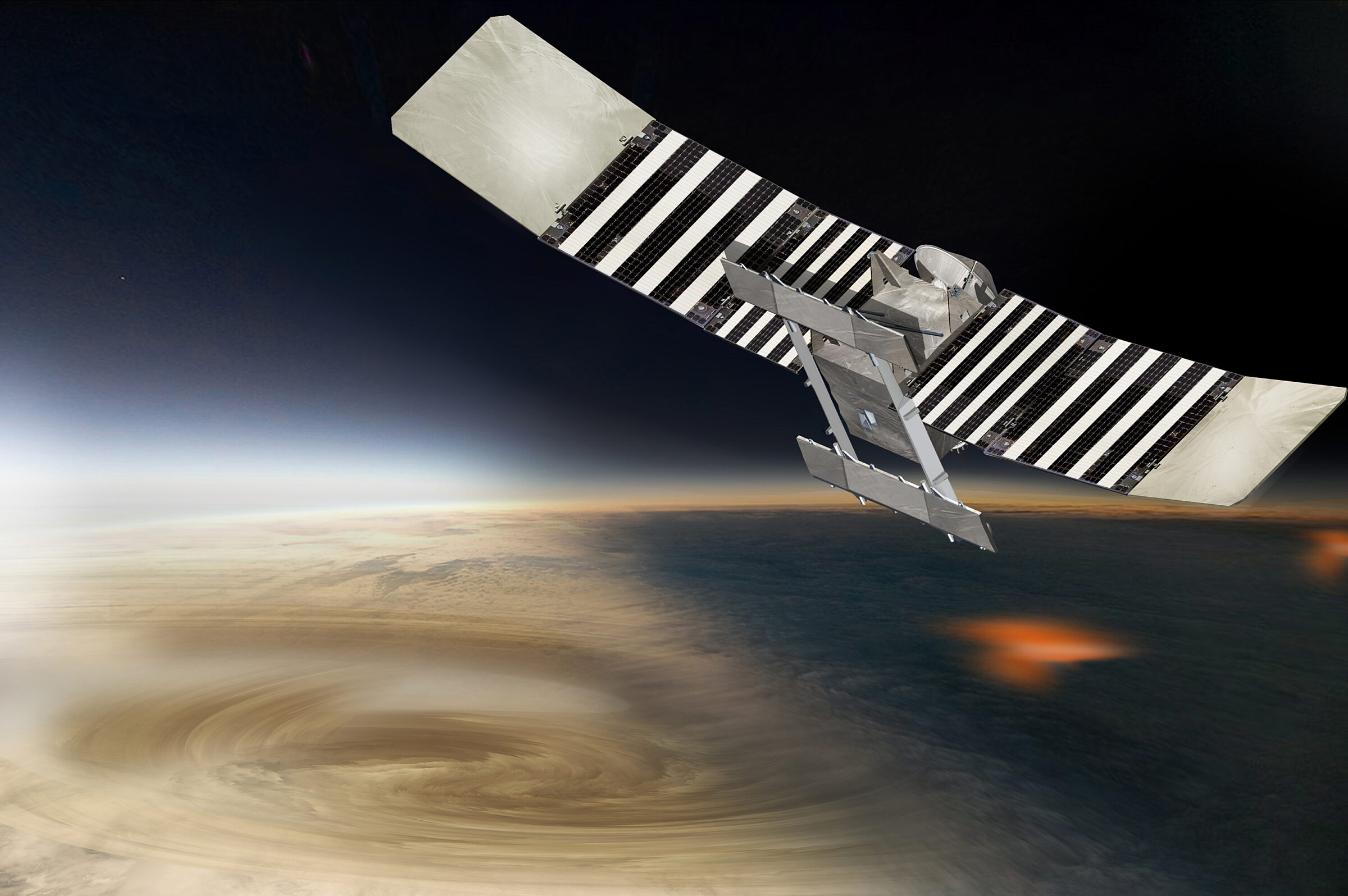Casey Dreier • Apr 05, 2023
The Planetary Society, American Geophysical Union, and Prominent Academic Institutions Call on Congress to Save VERITAS Mission to Venus
The Planetary Society, in partnership with the American Geophysical Union, the University of Alaska Fairbanks, Tulane University, and Mount Holyoke College, calls on Congress to save the Venus Emissivity, Radio science, InSAR, Topography And Spectroscopy (VERITAS) mission by establishing a 2029 launch date.
As Venus rises higher in the night sky, we are reminded that our closest planetary neighbor has gone unexplored by NASA since the 1990s. Selected in 2021, VERITAS was intended to begin a series of Venusian science missions that would help unlock the mysteries of Earth’s twin.
The mission was on budget and on schedule for a mid-2020s launch date prior to its current indefinite delay. This decision was precipitated by issues facing another mission, but which had very little impact on the performance of the VERITAS team.
Recent discoveries reveal new questions about the evolution of terrestrial bodies like Venus, and by extension, our home planet. Now, Congress has an opportunity to recommit the United States to leading the world in planetary exploration by saving VERITAS.
House Science, Space & Technology Committee
Space & Aeronautics Subcommittee
Senate Commerce & Science Committee
Space SubcommitteeTo the Members of the House and Senate:
We, the undersigned, write to the authorizing committees in the House and Senate with the following request to support a key NASA science mission and bolster U.S. leadership in space exploration.
The Venus Emissivity, Radio science, InSAR, Topography And Spectroscopy (VERITAS) mission is facing a critical juncture. NASA has indefinitely delayed the launch date1 and removed program development outlays for FY 2024 and beyond. This is through no fault of the project, and due to unrelated problems in other missions.
VERITAS is a key component of our nation’s robust and diverse space exploration strategy. The National Academies of Sciences lists VERITAS as a “Step Zero” mission in the 2023-2032 Decadal Survey for Planetary Science, referring to it explicitly as part of a “balanced mix of small, medium, and large missions”2 in the Recommended Program. Congress has routinely ordered NASA to use the Decadal Survey as a guide in previous reauthorizations, most recently in the 2022 reauthorization included in the bipartisan CHIPS and Science Act.
Without VERITAS, the United States will miss an extraordinary opportunity to lead the vanguard of scientific exploration of Venus, including how its climate and surface changed from a habitable to uninhabitable environment. Instead, other space organizations, including plans for orbiters by the China National Space Administration (proposed 2026 launch3) and the European Space Agency (proposed early 2030s launch4), may end up leading Venus exploration in the coming decades.
The impetus for the delay comes as a result of findings of an Independent Review Board (IRB) report studying last year’s unfortunate delay of another NASA mission, Psyche, which was delayed by one year. We acknowledge that the IRB report identified workforce and institutional issues at the Jet Propulsion Lab (JPL) that could impact future missions. Prior to the stand down, VERITAS was on schedule, on budget, and making excellent progress towards a 2027 launch date.
By delaying VERITAS indefinitely, NASA hampers the ability of the U.S. to “enable the Discovery Program to continue to support missions that address high-priority science objectives.”5 It also damages our relationship with allies, who had committed over $90 million worth of instrumentation and support to the mission.
We urge the Committees to direct NASA to launch VERITAS no later than November 2029 — a two-year delay — in the anticipated NASA reauthorization legislation. A firm commitment to a launch date helps NASA plan and budget the project accordingly, reassures our international and commercial partners, and affirms the United States’ commitment to leading the world in planetary exploration.
Congress has repeatedly acted in a bipartisan manner to promote NASA’s innovative and world-leading planetary exploration program, and we are grateful for this support. We hope that Congress will act to ensure the continuation of that leadership, and the future of the VERITAS mission, by including it in this year’s NASA reauthorization legislation.
Respectfully,
The Planetary Society
American Geophysical Union
University of Alaska Fairbanks
Tulane University
Mount Holyoke College
University of Arizona
Geological Society of America1 nasa.gov/press-release/as-psyche-mission-moves-forward-nasa-responds-to-independent-review
2 Planetary Science Decadal Survey, page 22-5
3 https://www.space.com/china-venus-mission-details
4 https://www.esa.int/Science_Exploration/Space_Science/ESA_selects_revolutionary_Venus_mission_EnVision
5 Planetary Science Decadal Survey, page 22-23
Petition: Support NASA science funding in FY 2024
Urge your representatives in Congress to support a budget for NASA science that ensures balance of space exploration initiatives and upholds the vision of the Decadal Survey.
Why we need VERITAS
NASA's first mission to Venus in decades is in danger. This is why VERITAS is worth saving.

Support our core enterprises
Your support powers our mission to explore worlds, find life, and defend Earth. You make all the difference when you make a gift. Give today!
Donate

 Explore Worlds
Explore Worlds Find Life
Find Life Defend Earth
Defend Earth


